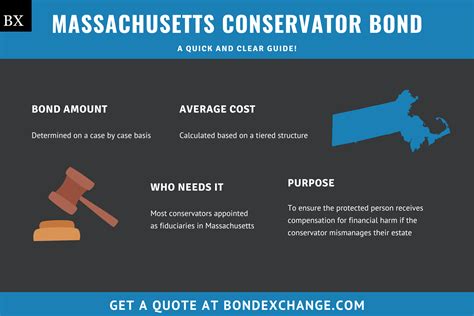Conservatorship in MA: A Comprehensive Guide to Appointment
Navigating the complexities of conservatorship in Massachusetts can be daunting. This comprehensive guide aims to clarify the process of conservatorship appointment, providing essential information for those considering or facing this legal process. Understanding the intricacies of MA conservatorship law is crucial for protecting vulnerable individuals and ensuring their well-being.
What is a Conservatorship in Massachusetts?
A conservatorship in Massachusetts is a legal process where a court appoints a responsible individual (the conservator) to manage the financial affairs and/or personal care of another person (the conservatee) deemed incapable of doing so themselves. This incapacity can stem from various factors, including age, illness, or disability, rendering the individual unable to handle their own affairs effectively. The court's primary concern is the conservatee's best interests. The conservator acts under the strict supervision of the court and is legally accountable for their actions.
Grounds for Appointment of a Conservator in MA
The court will only appoint a conservator if it's demonstrably in the conservatee's best interests. The petitioner (the person seeking the conservatorship) must provide substantial evidence proving the conservatee's inability to manage their affairs. This evidence might include:
- Medical evaluations: Doctors' reports detailing the conservatee's cognitive or physical limitations.
- Financial records: Demonstrating mismanagement of finances, such as unpaid bills or questionable transactions.
- Testimony from family and friends: Providing firsthand accounts of the conservatee's struggles with daily living or financial management.
The court will meticulously examine all evidence presented to ensure the appointment is truly necessary and serves the conservatee's well-being.
Who Can Petition for a Conservatorship?
Several parties can petition the court for a conservatorship, including:
- Family members: Spouses, children, parents, or other close relatives.
- Friends: Individuals with a close and ongoing relationship with the conservatee.
- Social workers or case managers: Professionals involved in the conservatee's care.
- Government agencies: Such as the Department of Social Services (DSS).
The Conservatorship Appointment Process in MA
The process involves several key steps:
-
Filing the Petition: The petitioner files a petition with the Probate and Family Court, providing detailed information about the conservatee and the reasons for the conservatorship.
-
Notice and Hearing: The court notifies the conservatee and other interested parties (e.g., family members) of the petition and schedules a hearing.
-
Investigation and Evaluation: The court may appoint a guardian ad litem (GAL) to investigate the situation and represent the conservatee's interests. This is especially crucial if the conservatee is unable to participate in the process effectively. A court clinician may conduct an evaluation to assess the conservatee's capacity.
-
Court Hearing: During the hearing, evidence is presented, witnesses are questioned, and the court determines whether a conservatorship is necessary.
-
Appointment of Conservator: If the court approves the petition, it will appoint a conservator and define the scope of their authority (financial, personal care, or both).
-
Ongoing Oversight: The conservator is required to file regular reports with the court, accounting for their management of the conservatee's affairs. The court maintains ongoing oversight to ensure the conservator acts appropriately and in the best interests of the conservatee.
Types of Conservatorships in Massachusetts
Massachusetts recognizes two main types of conservatorships:
-
Financial Conservatorship: The conservator manages the conservatee's financial affairs, including paying bills, managing investments, and handling bank accounts.
-
Personal Care Conservatorship: The conservator is responsible for the conservatee's personal care, including making decisions about healthcare, living arrangements, and daily activities. A single conservator can hold both responsibilities.
What Happens After Appointment?
Once a conservator is appointed, their responsibilities are clearly defined by the court's order. They are bound by legal and ethical obligations to act solely in the best interests of the conservatee. Regular court reporting is mandatory, ensuring transparency and accountability.
H2: What are the rights of a conservatee?
Even under conservatorship, the conservatee retains certain fundamental rights. These include the right to legal representation, the right to be informed of decisions affecting them, and the right to challenge the conservatorship in court. The court strives to balance the need for protection with preserving the conservatee's dignity and autonomy.
H2: How long does a conservatorship last?
The duration of a conservatorship varies depending on the circumstances. The court reviews the conservatorship periodically and can terminate it when the conservatee's capacity improves or the need for the conservatorship no longer exists. Regular evaluations are conducted to assess the continuing necessity of the conservatorship.
H2: What are the costs associated with a conservatorship?
The costs associated with a conservatorship can include attorney fees, court costs, and the conservator's fees (if they are compensated). The court carefully considers the financial implications of the conservatorship, seeking to minimize unnecessary expenses while ensuring adequate resources for the conservatee's care.
This guide provides a general overview of conservatorship in Massachusetts. The specific details of each case can vary significantly. It is crucial to consult with an experienced probate attorney for personalized advice and legal representation in navigating this complex legal process. Seeking professional legal counsel is paramount to ensuring the best possible outcome for both the conservatee and their loved ones.

